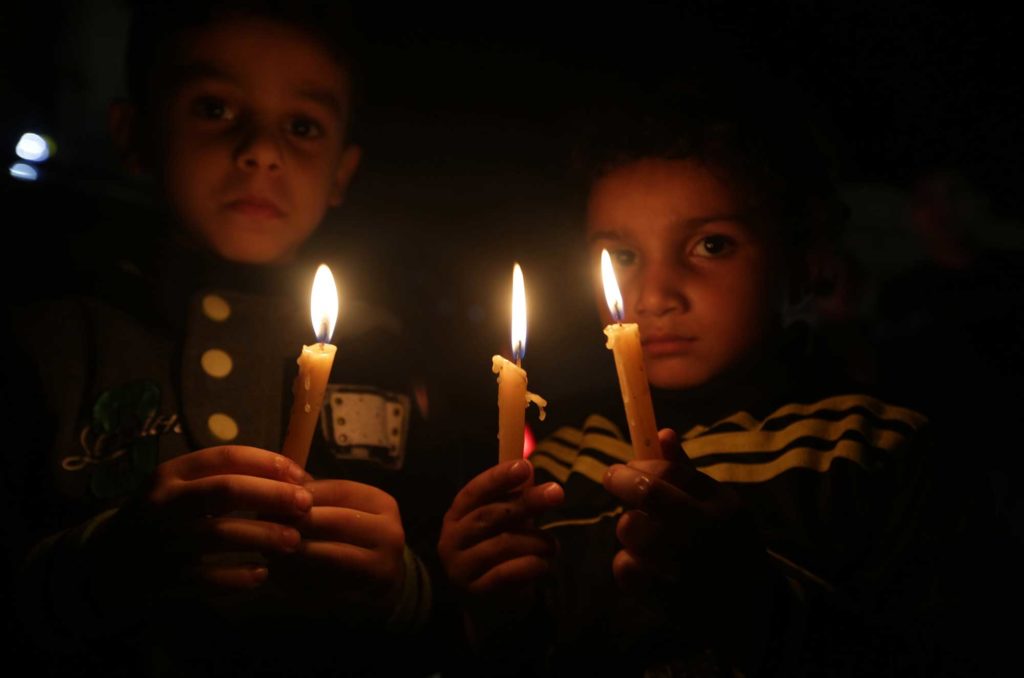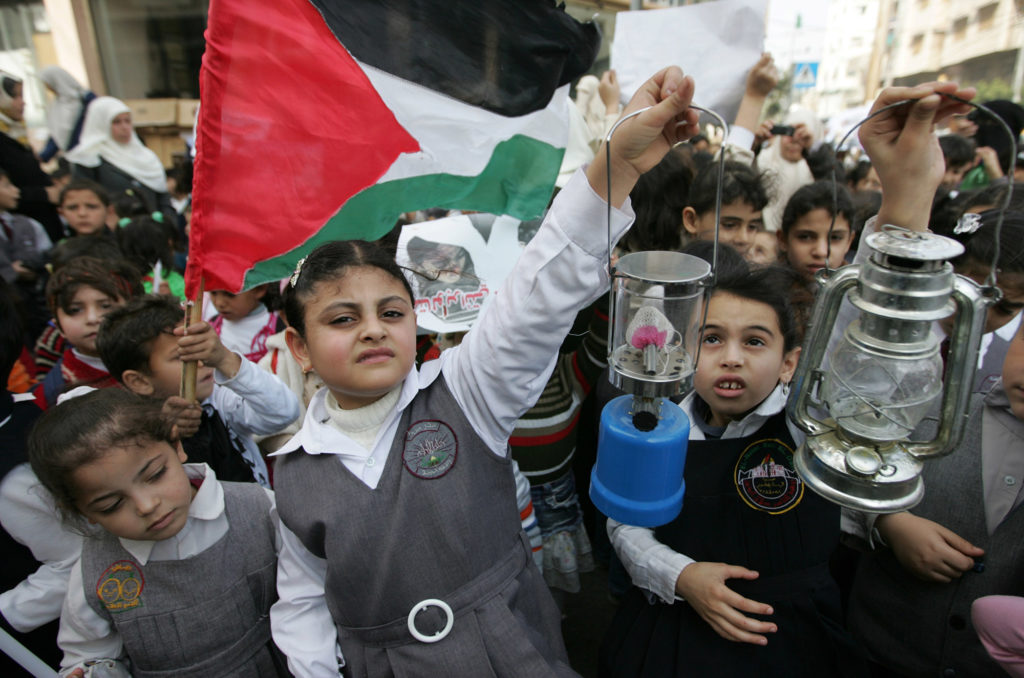Rania’s Diary: Living Without Light in Gaza
Posted in: Voices from the field
Early this week, I took a day off to stay home. It wasn’t for family time, school meetings or having friends over for dinner. I simply took the day off to wash the piles of laundry that had amassed on my balcony.
Sadly, people here cannot focus on anything but the Gaza electricity crisis, which is so central to our lives that the first question we ask each other after saying hello is “did you have electricity last night?” The power supply is sporadic and limited to four hours a day at best. We wake up at 2 A.M., if it comes on, to cook meals, do the laundry and other chores that require power. We are left totally unaware of the schedule, yet still, we end up organizing our entire lives around our hopes for when the lights will finally come on. We’re left guessing when we’ll be able to hear our neighbor’s children cheer, “hooray!”
Managing Simple Chores Under Blackout

Photo Mohammad Zannoun
What does it mean to live without electricity? It means that my niece Aya has to study with a flashlight. She and her classmates organize study groups that bounce around Gaza from neighborhood to neighborhood, following the power that is available at any given moment. They go through great lengths to study under a proper light, and not a flashlight or LED light, which causes headaches.
Without electricity, I have to coordinate each time I want to give my toddler a bath or wash her bottles. As she grows up, she’s learning new words. One of those few, new words is “light,” which she shouts excitedly each time the electricity is back on.
The simple gift of electricity may be taken for granted elsewhere, but in Gaza it’s a source of simple happiness. If one day, we miraculously have electricity for a whole day, it would make headlines on the local news. I have to say, one of the things that caught my attention when I visited the U.S. was that shops keep their lights on even after they’re closed for the night.
As my toddler grows up, she’s learning new words. One of those few, new words is “light,” which she shouts excitedly each time the electricity is back on.
And have you ever thought of the advantages of living on the first floor of a building? In Gaza, you’ll be envied by everyone if you do. It’s a privilege not to have to wait for the elevator to take you to the upper floors. I just got that envious look from an elderly neighbor who had to use the stairs to get to the seventh floor.
When there’s no electricity, families have to live by candlelight. This comes with deadly consequences. Recently the Al Hindi family lost three sons when their makeshift home caught on fire. Last year, it was reported that 24 children and five adults had died in fires while using gas heaters or candles during power cuts.
“We Live in an Open Air Prison”

Photo by Mohammad Zannoun
Gaza is no stranger to crisis: wars, power cuts, crime, poverty, unemployment, blockade and more. This tiny place has taken a huge toll while there have been no plans enforced to address these issues.
Recently, the World Bank reported that Gaza is “on the verge of human catastrophe.” Gaza is operating on a supply of emergency fuel that is only sufficient for one month. The only power plant, which has been bombed several times, now functions at half capacity. When the power comes on, it’s prioritized for health facilities and that means even fewer hours of power for residents.
When there’s no electricity, families have to live by candlelight. This comes with deadly consequences.
The Gaza electricity crisis puts critical services at risk, such as hospitals, schools and water sanitation systems. It also makes it impossible for businesses to function. Gaza needs new water filtration plants to treat sewage, which is currently being dumped in the Mediterranean Sea. We also need desalination plants to purify drinking water. But these treatment plants cannot function without electricity.
It’s become a cliché but it’s true: we live in an open air prison. With borders closed, cement and other construction materials are not entering Gaza. Jobs for thousands of people have been depleted. There’s a feeling that this tiny place has had enough.
In spite of all our misery, there are some glimmers of hope to hold close to our hearts. For me, the only remedy is a walk by the Gaza beach. It’s now full of passersby with pounding hearts, hoping that tomorrow will be better than today. A walk in darkness is not that scary anymore.
OUR BLOG
Related
In this log, Anera provides updates on unfolding war in Palestine and our response. In some cases, additional activities may be added retroactively to the daily entries as we receive additional program reporting. Questions? See our FAQ page December 17,…